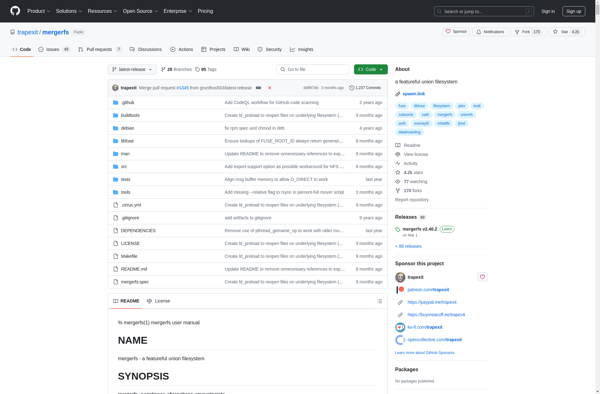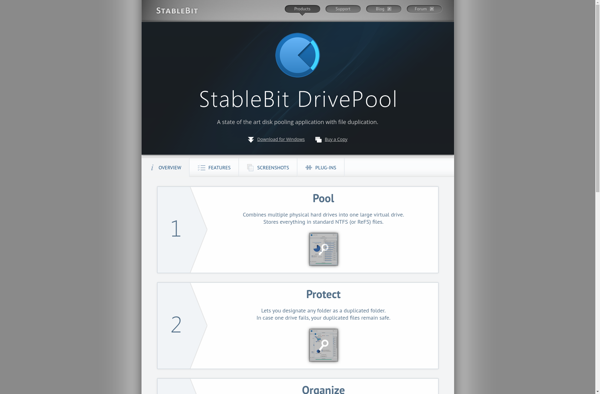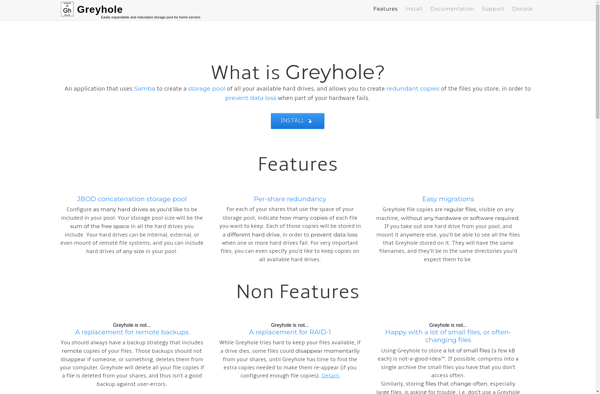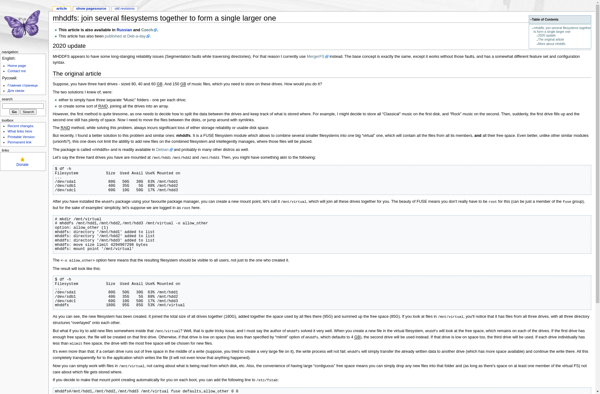Mergerfs

Mergingfs: Open Source Union File System
Mergingfs is an open source union file system for Linux, allowing you to combine multiple directories into a single virtual filesystem. It supports permissions, CoW, Directories, Extended attributes, etc.
What is Mergerfs?
mergerfs is an open source union filesystem for Linux that allows you to combine multiple directories into a single virtual filesystem. It is implemented as a FUSE filesystem module.
Some key features and benefits of mergerfs include:
- Combines multiple directories and presents them as a single directory structure
- Supports permissions, copy-on-write (CoW), extended attributes, etc.
- Efficiently pools disks and simplifies storage
- Implements policies to determine which files reside on which filesystems
- Can be configured for redundancy, speed, capacity utilization, etc.
- Works on most Linux distributions and is implemented in C++/Python
- Lightweight and high-performance for large numbers of files
- Open source with an active community behind its development
mergerfs is commonly used to pool storage devices like hard disks, cloud drives, and network storage into unified filesystems without needing to migrate data. It has a wide range of use cases from personal NAS solutions to enterprise storage platforms.
Mergerfs Features
Features
- Unites multiple drives into a single virtual filesystem
- Supports permissions, copy-on-write, directories, extended attributes
- Works with a variety of filesystems including ext, xfs, btrfs
- Can set policies to control file placement and balancing
Pricing
- Open Source
Pros
Cons
Official Links
Reviews & Ratings
Login to ReviewThe Best Mergerfs Alternatives
Top File Management and Union File Systems and other similar apps like Mergerfs
Here are some alternatives to Mergerfs:
Suggest an alternative ❐StableBit DrivePool

Greyhole

Mhddfs

Btrfs
